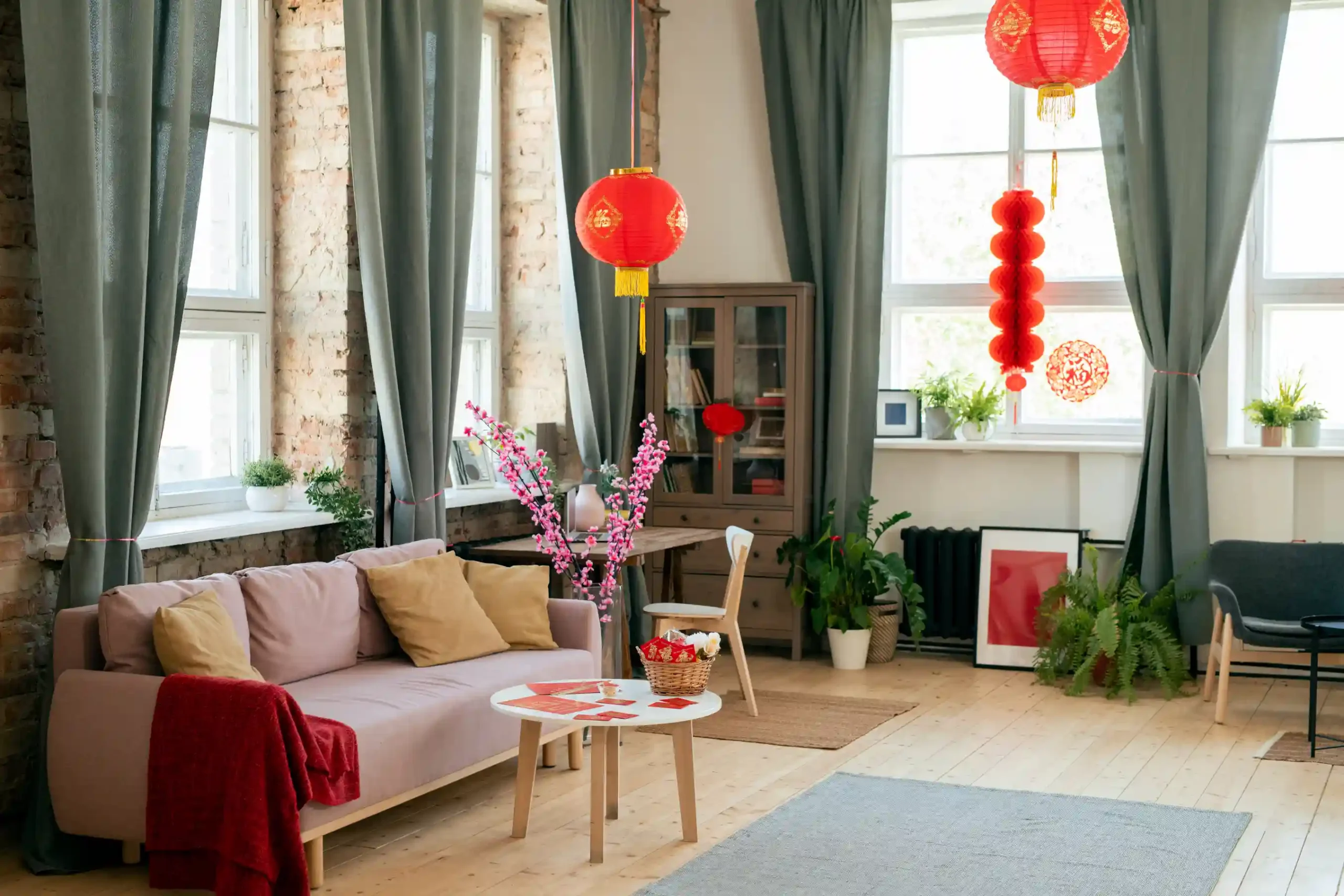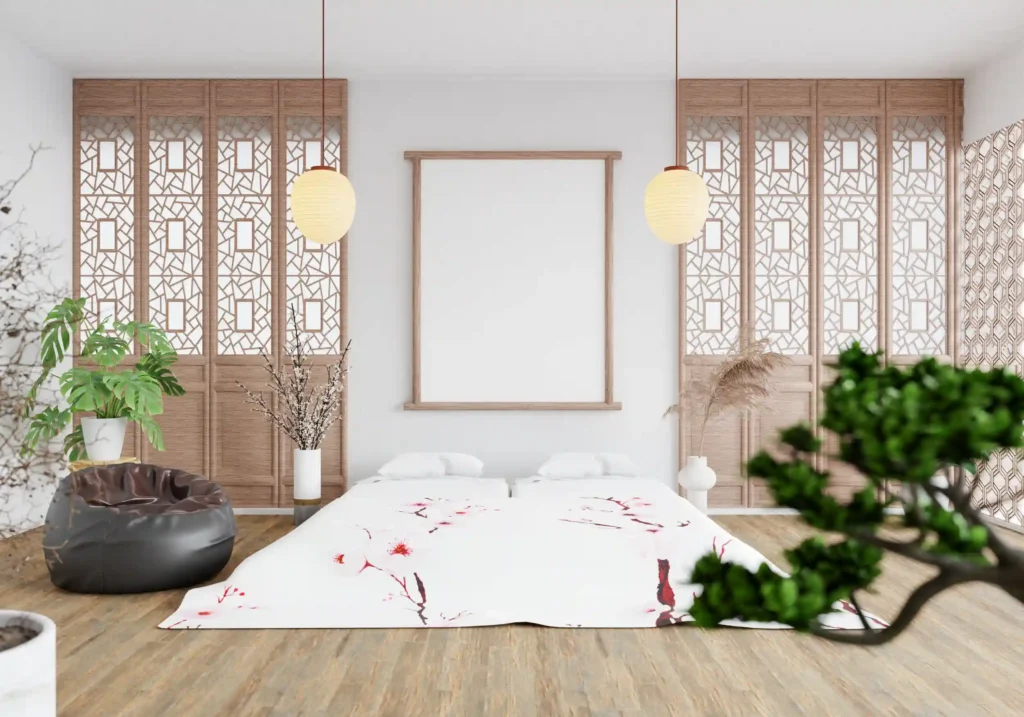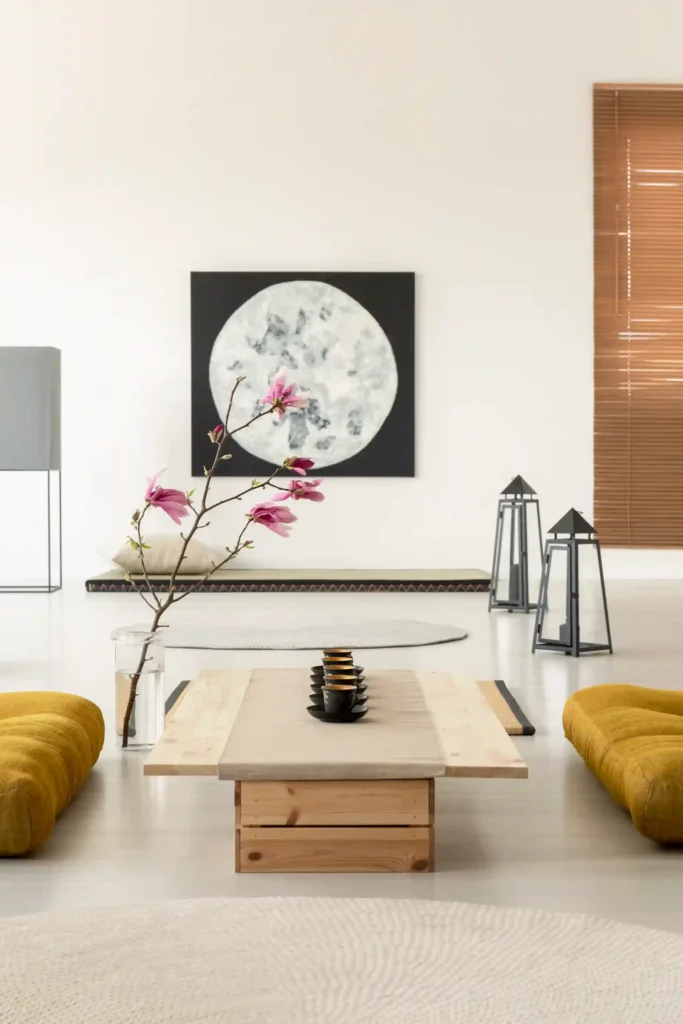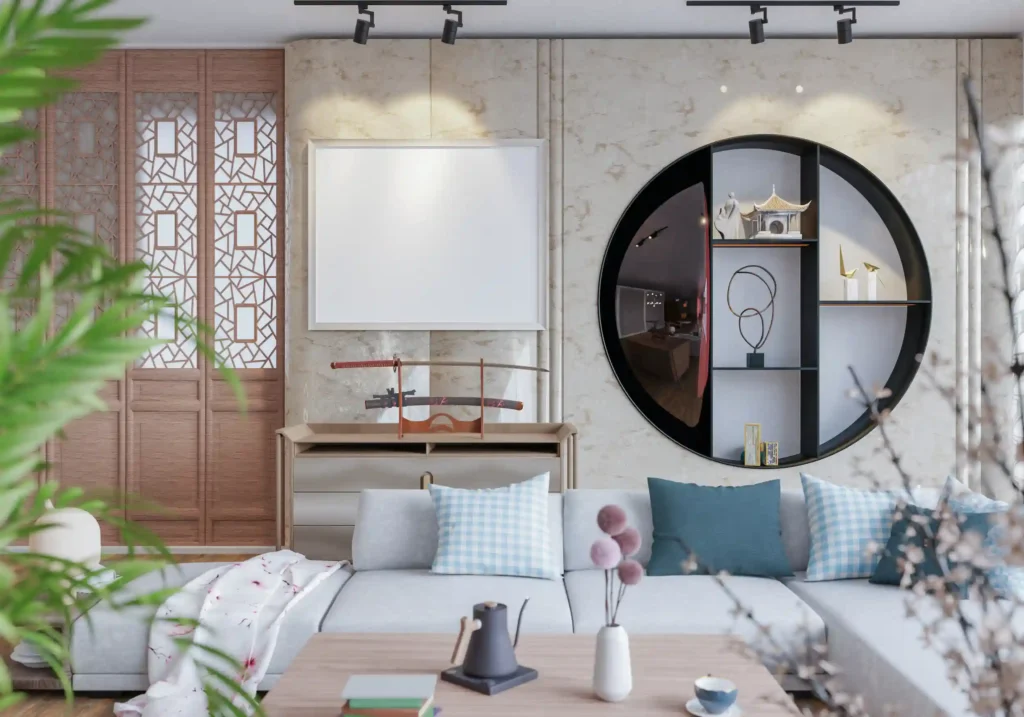
Have you ever walked into a room and just felt… off? Or perhaps you’ve entered a space that instantly made you feel calm, energized, or even luxurious? Chances are, you’ve experienced the subtle yet powerful influence of energy flow, or what traditional Chinese practices call ‘chi’. This isn’t just about interior design; it’s about geomancy, the ancient art and science of feng shui, which has been guiding people for thousands of years in creating harmonious environments.
In a world that often feels chaotic and overwhelming, the desire for peace, balance, and positive energy within our personal spaces is more potent than ever. Many of us are looking for ways to enhance our well-being, improve our relationships, and even attract prosperity without embarking on a full-scale renovation. That’s where the fundamental concept of feng shui comes in. It offers a practical framework for arranging your surroundings to support your life’s goals, making your home not just a shelter, but a sanctuary that actively nourishes you.
I remember when I first started exploring feng shui. I was skeptical, thinking it was just a bunch of mystical mumbo jumbo. But as I began to apply some of the basic principles—like decluttering a messy corner or rearranging my bed into a commanding position—I noticed tangible shifts. My sleep improved, I felt less anxious, and my home simply felt lighter. It wasn’t magic; it was a deeper understanding of how our environment impacts our internal state. This journey of understanding chi in feng shui, and seeing how it affects energy in a house, truly opened my eyes.
This article isn’t about telling you to paint your walls red or move mountains. Instead, it’s about demystifying feng shui, explaining its core tenets, and providing actionable insights you can start using today. We’ll explore what is the goal of feng shui practice, delving into how these principles can be applied to create a healthy home environment, and ultimately, how to live a more balanced and fulfilling life in 2025 and beyond.
Key Takeaways
- Chi is the universal life force that feng shui aims to balance and optimize in your environment.
- The Five Elements (Wood, Fire, Earth, Metal, Water) are foundational tools for understanding and influencing energy in any space.
- The Bagua map is an essential grid that divides your space into nine life areas, each corresponding to specific aspirations like wealth or relationships.
- Decluttering is paramount; it clears stagnant energy and allows positive chi to flow freely, impacting all aspects of your life.
What Feng Shui really signifies: More Than Just Decor
The main idea behind feng shui is to live in peace with your surroundings. It is an old Chinese way of thinking that attempts to make everyone fit in with the world around them. In Chinese culture, “feng shui” means “wind” and “water,” which are both ideal for health and prosperity. It’s not just an artistic choice or a design trend: it’s a deep concept that affects how energy travels through and influences your life.
Often, people mistakenly think feng shui is about superstitions or simply arranging furniture for visual appeal. While aesthetics play a role, the deeper intention is to create spaces that support your well-being, goals, and overall vitality. It’s about optimizing the invisible energy currents—the chi—that permeate everything around us, including our homes and workplaces. Understanding chi in feng shui is where the journey truly begins.
For me, the realization that my environment was a direct reflection of my internal state was a game-changer. When my home was chaotic, so was my mind. When I began to consciously apply feng shui principles, even small ones, I felt a shift not just in my space, but within myself. It became clear that the goal of feng shui practice is to cultivate environments that foster peace, health, and prosperity.
Learning about Chi: The Energy That circulates Through Your Home
If you grasp one thing about feng shui, let it be the concept of ‘chi’ (pronounced “chee”). Chi is the universal life force, the invisible energy that animates all things. It flows through the natural world, through our bodies, and critically, through our homes and offices. Think of it like the air you breathe, the electricity powering your devices, or the blood pumping through your veins—it’s essential, though often unseen.

The entire practice of feng shui revolves around understanding, nurturing, and guiding this chi energy flow. When chi is stagnant, blocked, or rushes too quickly through a space, it can negatively impact the occupants’ health, wealth, and relationships. Conversely, when chi flows smoothly and harmoniously, it brings vitality, balance, and good fortune. This is how does feng shui affect energy in a house; by managing this invisible current.
From a first-hand perspective, I’ve seen how a cluttered entrance hall can feel like a bottleneck, impeding opportunities from entering your life. Once cleared and brightened, suddenly the energy felt more welcoming, and new opportunities seemed to appear. Understanding chi in feng shui isn’t abstract; it’s a practical way to diagnose and improve the energy of your surroundings, ensuring that your home supports, rather than drains, you.
The balance of Yin and Yang: Peace within opposites
Central to Chinese philosophy, and therefore to feng shui, is the concept of Yin and Yang balance. This principle describes how seemingly opposite or contrary forces may actually be complementary, interconnected, and interdependent in the natural world, and how they may give rise to each other as they interrelate to one another. It’s not about good versus evil, but rather the interplay of dynamic forces.
In feng shui, Yin represents the feminine, dark, passive, cool, soft, and still. Yang represents the masculine, light, active, warm, hard, and moving. A truly harmonious space isn’t all Yin or all Yang; it’s a skillful blend of both. Imagine a bedroom that’s too brightly lit (Yang) and filled with sharp angles (Yang) – it might feel restless. Conversely, a living room that’s too dark (Yin), overly soft (Yin), and cluttered (Yin) might feel draining or depressing.
The goal is to achieve a balanced environment where these energies flow smoothly together. For instance, a cozy bedroom with soft lighting (Yin) but with a sturdy bed frame (Yang) provides both comfort and support. A vibrant home office might balance stimulating colors and active elements (Yang) with comfortable seating and natural light (Yin) to promote both productivity and focus without burnout. Achieving this Yin Yang balance is key to a comfortable and functional space.
The 5 Elements Theory: A Fluid Collaboration
One of the most powerful diagnostic and prescriptive tools in feng shui is the Five Elements theory. These are Wood, Fire, Earth, Metal, and Water. These aren’t just literal elements; they are symbolic representations of energy qualities and phases that constantly interact in various cycles: productive, destructive, and exhaustive.

Understanding these interactions is crucial for creating balance in a space. For example, the productive cycle shows how one element supports the next: Wood feeds Fire, Fire creates Earth (ash), Earth produces Metal, Metal carries Water, and Water nourishes Wood. The destructive cycle, on the other hand, illustrates how elements can control or deplete each other: Wood parts Earth, Earth absorbs Water, Water quenches Fire, Fire melts Metal, and Metal chops Wood.
When applying feng shui, you’ll use these elements to assess and adjust the energy of different areas in your home or office. Need more creativity? Perhaps introduce Metal elements. Seeking more growth and vitality? Bring in Wood. This theory helps you select colors, materials, shapes, and objects to strategically enhance or temper certain energies in specific areas. What are the five elements in feng shui? They are your toolkit for energy mapping.
Here’s a quick look at the characteristics and common representations of each element:
| Element | Characteristics | Common Representations | Auspicious Colors |
|---|---|---|---|
| Wood | Growth, vitality, expansion, new beginnings, flexibility | Tall plants, vertical stripes, wooden furniture, green, rectangular shapes | Green, Teal, Blue |
| Fire | Passion, energy, transformation, recognition, inspiration | Bright lights, candles, triangular shapes, red, purple, animal prints | Red, Orange, Deep Purple |
| Earth | Stability, grounding, nurturing, security, balance | Earthenware, ceramic, square shapes, heavy furniture, brown, yellow, beige | Yellow, Brown, Beige, Sandy tones |
| Metal | Clarity, precision, logic, organization, communication | Metal objects, round shapes, white, grey, silver, gold, stones | White, Grey, Silver, Gold |
| Water | Flow, wisdom, intuition, connection, emotional depth, wealth | Water features, wavy patterns, glass, mirrors, black, dark blue | Black, Dark Blue |
Making Use of the Bagua Map to Get Around Your Place
The Bagua map is arguably one of the most practical and widely used tools in modern feng shui. It’s an octagonal grid, typically divided into nine sections, each corresponding to a specific life area, or ‘gua’, and connected to one of the Five Elements, colors, and directions. When superimposed over your home’s floor plan, it helps you identify which areas of your space correspond to different aspects of your life, such as wealth, health, relationships, career, or family.
There are two main ways to orient the Bagua: the Traditional (Compass) method and the Western (BTB) method. For beginners, the BTB (Black Hat Sect Tantric Buddhist) Bagua is often easier, as it simply aligns the ‘Career/Path in Life’ area with your main entrance door. This makes how to apply feng shui in your home much more accessible.
For example, if your front door is on the side of your home that aligns with the ‘Career’ gua, then the opposite back wall would typically be your ‘Wealth’ gua. My first experience with the Bagua map was eye-opening. I realized my ‘Wealth’ area was cluttered with old, broken items. Once I cleared it, I felt a shift in my financial mindset and opportunities. It truly helps with energy mapping, allowing you to purposefully enhance specific areas of your life by making adjustments in corresponding parts of your home.

Here are the nine main life areas of the Bagua map:
- Wealth & Prosperity (Xun): Upper left section. Enhance with Wood and Water elements. Related to financial abundance and blessings. This is where you focus on feng shui principles for wealth and prosperity.
- Fame & Reputation (Li): Upper middle section. Enhance with Fire and Wood elements. Related to how you’re seen in the world and your personal reputation.
- Relationships & Love (Kun): Upper right section. Enhance with Earth and Fire elements. Related to partnerships, marriage, and self-love.
- Family & New Beginnings (Zhen): Middle left section. Enhance with Wood and Water elements. Related to family harmony, community, and personal growth.
- Health & Center (Tai Chi): The very center of your space. Enhance with Earth elements. Represents overall well-being, balance, and unity of the home.
- Creativity & Children (Dui): Middle right section. Enhance with Metal and Earth elements. Related to creativity, projects, and children.
- Knowledge & Self-Cultivation (Gen): Lower left section. Enhance with Earth and Metal elements. Related to personal wisdom, spirituality, and learning.
- Career & Path in Life (Kan): Lower middle section. Enhance with Water and Metal elements. Related to your professional journey and life purpose.
- Helpful People & Travel (Qian): Lower right section. Enhance with Metal and Earth elements. Related to mentors, benefactors, and opportunities for travel.
Managing Position: Getting the Best Out of Strength and Motion
The concept of the ‘commanding position’ is one of the easiest feng shui tips for beginners to grasp and implement, and it can have a profound impact. It refers to the ideal placement of important furniture items like your bed, desk, and stove, ensuring you can see the door without being directly in line with it. This position allows you to comfortably perceive anyone entering the room, giving you a sense of security and control over your space and, by extension, your life.
When your bed is in the commanding position, for instance, you can rest knowing you won’t be surprised, promoting deeper, more restorative sleep. For a desk, being in a commanding position allows you to focus and be productive without feeling vulnerable or distracted. In the kitchen, your stove (representing wealth and nourishment) should also ideally be in a commanding position, allowing you to see who enters the kitchen while cooking.
I distinctly remember feeling restless every night after moving my bed against a wall that faced the door directly. It wasn’t until I learned about the commanding position and shifted my bed to a wall that allowed me to see the door diagonally that my sleep significantly improved. This simple adjustment illustrates how subtle spatial arrangements can profoundly affect our subconscious and overall well-being. It’s a key aspect of how to arrange furniture for good feng shui.
Why It’s Important to Declutter: Making Room for Good Energy
If there’s one universal piece of advice from any feng shui practitioner, it’s this: declutter! The importance of decluttering in feng shui cannot be overstated. Clutter creates stagnant energy, blocks opportunities, and can weigh you down mentally and emotionally. Imagine trying to drive a car through a crowded, garbage-strewn street versus a clear, open highway. That’s the difference a cluttered space makes to chi flow.

Every item in your home holds energy. If you have things you don’t love, don’t use, or that are broken, they’re not just taking up physical space; they’re occupying energetic space and potentially draining your vitality. Decluttering principles are about releasing what no longer serves you to make room for new, positive energy and opportunities to enter your life. It’s about creating space planning harmony.
My own journey into feng shui started with decluttering. I had a notoriously messy storage room that felt like a black hole of old possessions. The day I finally tackled it, donating and discarding years of unused items, I felt an incredible lightness, not just in my home but in my spirit. It felt like I had cleared mental and emotional blockages too. It truly is one of the most impactful easy feng shui tips for beginners, directly affecting how does feng shui affect energy in a house.
Feng Shui Plants and Other Natural Boosters
Bringing nature indoors is a cornerstone of good feng shui, and feng shui plants are particularly potent tools. Plants introduce vibrant, living chi into your space, enhancing growth, vitality, and health. They can purify the air, soften sharp corners, and provide a connection to the natural world, which is inherently balancing.
However, not all plants are created equal in feng shui. Generally, plants with soft, rounded leaves are preferred over those with sharp, spiky foliage (like cacti, which should be placed with care, often outdoors). Money trees, jade plants, and peace lilies are popular choices for their auspicious qualities and ability to thrive indoors. They embody the Wood element, which is fantastic for growth and new beginnings.
Beyond plants, consider other natural elements: a bowl of smooth river stones (Earth), a clear quartz crystal (Earth/Metal), or a small tabletop water feature (Water). These elements bring the grounding and refreshing energies of nature into your home, contributing to a healthy home environment. Always choose healthy, thriving plants; dying or sickly plants will bring negative energy. This is how to apply feng shui in your home with living elements.
Feng Shui for the Bedroom: Creating a Space to Unwind
Your bedroom is arguably the most important room in your home when it comes to personal well-being. It’s where you rest, recharge, and often where romantic relationships are nurtured. Therefore, meticulous bedroom feng shui is essential for a healthy and harmonious life. The goal here is to create a space that promotes tranquility, intimacy, and deep, restorative sleep.
Key principles for bedroom feng shui include:
- Commanding Position: As discussed, place your bed so you can see the door but aren’t directly in line with it. Ensure a solid wall behind your headboard for support and stability.
- No Electronics: Keep TVs, computers, and even phones out of the bedroom, or at least away from your bed. Their electromagnetic fields (EMFs) can disrupt sleep and the peaceful energy of the room.
- Soft Lighting: Opt for dimmable lights and lamps with warm, soft glows. Avoid harsh overhead lighting in the evening.
- Calming Colors: Auspicious colors for a bedroom often lean towards soft, earthy tones, muted blues, greens, or even gentle pinks, promoting relaxation and emotional balance. Avoid overly stimulating reds or dark blues.
- Paired Items: For relationships, use pairs of items (two nightstands, two lamps, two pillows) to symbolize partnership and balance.
- Clear Under the Bed: Avoid storing clutter under your bed, as this can create stagnant energy that disrupts your sleep and personal growth.
- Mirrors: Be cautious with mirrors. Avoid placing them directly facing the bed, as they can reflect energy and disturb sleep. If you must have one, ensure it doesn’t reflect your sleeping form.
I once had a client whose bedroom was filled with exercise equipment and work documents. After decluttering these items and implementing basic bedroom feng shui principles, she reported feeling much more relaxed and finally getting a good night’s sleep. It underscores how our spaces directly impact our vital rest.
Installing Water Based Features in appropriate Places for Prosperity and Growth
Water is a potent symbol of wealth and abundance in feng shui, representing flow, wisdom, and connection. Strategic water features placement can significantly enhance the chi energy flow in your home, particularly concerning prosperity. However, knowing where *not* to place water is just as crucial.
Typically, indoor water features like small fountains are best placed in the Wealth (Southeast) or Career (North) areas of your home, according to the Bagua map. They should always have clear, moving water, symbolizing ongoing income and opportunities. The sound of gentle trickling water can also be very soothing and help circulate positive energy. For best feng shui elements for living room, a subtle water feature can be very effective.
Conversely, avoid placing water features in the bedroom (as it can introduce too much Yin energy and promote financial loss or emotional turbulence) or directly opposite your front door (which can cause wealth to flow right out). Also, ensure the water flows *inward* towards your home, not out, to symbolize drawing in prosperity. Water features are powerful tools when used correctly for feng shui principles for wealth and prosperity.
Crystals for Energy: Enhancing Vibrations
Crystals have been used for millennia for their energetic properties, and in feng shui, they serve as powerful enhancements to amplify specific types of chi. Each crystal carries a unique vibration and can be strategically placed to support various life areas identified by the Bagua map or to balance the Five Elements.
For example, amethyst is often used in the Knowledge/Self-Cultivation area for clarity and spiritual growth, while rose quartz is a popular choice for the Relationships area to foster love and harmony. Citrine, known as the “merchant’s stone,” is frequently placed in the Wealth sector to attract abundance. Clear quartz is a master healer and can amplify the energy of other crystals and the general environment.
When selecting crystals for energy, trust your intuition. Choose stones that resonate with you and the specific intention you have for a particular space. Cleanse your crystals regularly (e.g., with moonlight or sage smoke) to keep their energy vibrant. They are wonderful tools for enhancing the vibrations and creating a more harmonized space, embodying Earth and Metal elements.
How Colours Can Affect Your Environment and Your Life
Color is a fundamental aspect of feng shui, as it directly relates to the Five Elements and profoundly impacts our mood and energy. Auspicious colors are used to enhance certain areas of the Bagua or to introduce a missing element into a space. The right colors can invigorate, calm, or even attract specific types of energy.

For instance, greens and blues are associated with the Wood element, promoting growth, healing, and tranquility, making them excellent for the Family or Wealth areas. Reds, oranges, and deep purples represent the Fire element, stimulating passion, fame, and recognition, ideal for the Fame & Reputation sector but used sparingly in bedrooms. Earth tones like yellows, browns, and beiges provide grounding and stability, perfect for the Health or Relationships areas. Whites, grays, and metallics (Metal element) enhance clarity and precision, suitable for Creativity or Helpful People sectors. Blacks and dark blues (Water element) represent wisdom and depth, great for Career.
Consider the existing elements in a room and which element you want to strengthen or balance. For example, if your living room feels too cold and lacking warmth, introducing some subtle reds or oranges (Fire) through cushions or artwork could be beneficial. Remember that context matters: a vibrant red accent wall in a living room might be invigorating, but the same intensity in a bedroom could be too stimulating. The judicious use of auspicious colors is an easy feng shui tip for beginners to visibly transform a space.
Is Feng Shui a Religion or Philosophy? Breaking Down Myths
One common question I encounter is, “Is feng shui a religion or philosophy?” It’s important to clarify that feng shui is not a religion. It does not require worship of deities, adherence to specific dogmas, or conversion to a particular faith. Instead, it is a complex philosophical system and an ancient Chinese art and science rooted in Taoist principles.
Feng shui draws heavily from observations of nature, astronomy, and geography, combined with an understanding of energy flow. It operates on universal principles like chi, Yin and Yang, and the Five Elements, which are philosophical concepts rather than religious tenets. While it originated in a culture rich with spiritual practices and can certainly be integrated into a spiritual lifestyle, its core application is about understanding and harmonizing with natural energy patterns in our built environment.
It’s similar to acupuncture or traditional Chinese medicine—these are practices based on a philosophical understanding of energy (chi) in the body, not religious beliefs. Feng shui applies these same principles to the external environment. Its effectiveness is based on observable impacts on mood, behavior, and opportunities, rather than faith. You don’t need to believe in a specific god to experience the benefits of a well-arranged space; you just need to understand how the environment influences you. For further reading on the philosophical foundations, you can consult resources like Wikipedia’s entry on Feng Shui.
How to Apply Feng Shui in Your Home: Easy Tips for Beginners
Starting with feng shui doesn’t require drastic changes or a complete overhaul. Many powerful transformations can come from small, intentional adjustments. Here are some easy feng shui tips for beginners to start applying the fundamental concept of feng shui in your home today:
- Clear the Entrance: Your front door is the mouth of chi. Ensure it’s clean, well-lit, and inviting. Remove any clutter, sweep the porch, and maybe add a vibrant plant or a fresh doormat.
- Declutter Relentlessly: This is step number one. Tackle one area at a time—a drawer, a shelf, a closet. Get rid of anything you don’t use, don’t love, or that’s broken. The importance of decluttering in feng shui cannot be overstated.
- Fix What’s Broken: Dripping faucets, broken appliances, cracked windows—these symbolize draining energy or neglected areas in your life. Repair them promptly.
- Bring in Nature: Incorporate living plants (avoid spiky ones in most indoor areas), fresh flowers, natural light, and good airflow. Open windows regularly to invite fresh chi.
- Practice the Commanding Position: Adjust your bed, desk, and main seating arrangements so you can see the door without being directly in front of it.
- Address the Bathroom Door: In feng shui, bathrooms are often seen as drains of energy. Keep bathroom doors closed and toilet lids down to prevent chi from “flushing away.”
- Use Mirrors Mindfully: Mirrors can expand a space and amplify light, but avoid placing them directly opposite doors or reflecting your bed.
- Balance the Elements: Look at your rooms and see if any element is dominant or missing. Use colors, materials, and shapes to introduce balance (e.g., adding wood to a metallic-heavy kitchen).
- Personalize Your Space: Display items that bring you joy and represent your aspirations. Your home should reflect who you are and who you want to become.
Remember, the goal is to create a space that feels good to you, a space that supports your goals and well-being. Start small, observe the changes, and trust your intuition.
Energy Mapping and Space Planning Harmony
Energy mapping is the process of understanding and optimizing the flow of chi within a specific environment. While the Bagua map provides a general blueprint, true energy mapping involves a more intuitive and detailed assessment of how chi moves through your space, considering factors like natural light, ventilation, furniture arrangement, and even the emotional history of a room. This is where geomancy, the art of interpreting the layout of the land, extends into your personal living space.
Space planning harmony aims to create an environment where every object and every layout decision contributes to a smooth, beneficial flow of energy. It’s about ensuring that paths are clear, corners are not too sharp, and areas designated for specific activities (like rest, work, or social interaction) are energetically supportive of those functions. For instance, in a living room, arranging furniture for good feng shui means creating conversational groupings that encourage interaction, avoiding large, imposing pieces that block flow, and ensuring the main seating area is in a commanding position. The best feng shui elements for living room should support communal well-being and relaxation.
When I work with clients, we often start by walking through their home with fresh eyes, paying attention to how each room ‘feels.’ Are there areas that feel heavy or stuck? Do certain pathways feel obstructed? This intuitive sensing, combined with the structural guidance of feng shui principles, allows for truly personalized adjustments that create optimal energy mapping and space planning harmony.
Lo Pan Compass and Flying Stars Feng Shui: More Than the Basics
While the fundamental concept of feng shui can be applied with simple tools like the Bagua map, advanced practitioners often delve into more complex systems. Two prominent examples are the Lo Pan compass and Flying Stars Feng Shui.
The Lo Pan compass is an intricate instrument used by professional feng shui consultants to take precise readings of directions and calculate the energetic influences on a building. It’s far more detailed than a standard compass, containing rings of information that correspond to various feng shui formulas, including the Eight Trigrams, the Five Elements, and various star patterns. Using a Lo Pan compass involves specialized training and deep understanding of classical feng shui principles, allowing for highly accurate energy mapping.
Flying Stars Feng Shui is a dynamic and time-sensitive system that tracks the movement of energetic patterns, or “stars,” that influence a space over time—annually, monthly, and even daily. These “stars” are numerical energies that represent different types of chi, affecting wealth, health, relationships, and other aspects of life. By understanding the “natal chart” of a building (based on its construction date and orientation) and the annual/monthly flying stars, practitioners can predict potential influences and recommend specific remedies or enhancements. This method adds a powerful layer of temporal understanding to geomancy, explaining why a space’s energy can shift over time without physical changes.
For most beginners, these systems are advanced, but knowing they exist highlights the depth and complexity of feng shui as a science and art. My own deeper studies into these methods revealed the incredible precision and rich history behind these practices, moving far beyond mere decorative arrangement to true energy manipulation.
Feng Shui for Wealth and Prosperity: Things You Can Do
Many people turn to feng shui with the specific intention of attracting wealth and prosperity. The good news is that feng shui principles for wealth and prosperity are deeply integrated into the entire practice, focusing on creating an environment that supports flow, abundance, and opportunity. It’s not just about placing a “money frog” in a corner; it’s about holistic energetic support.
Here are some actionable strategies:
- Activate Your Wealth Corner: Locate the Wealth & Prosperity area using your Bagua map (typically the far left corner from your main entrance for the BTB method, or Southeast for Traditional Compass). Enhance this area with Wood and Water elements:
- Wood: Healthy, vibrant feng shui plants (like a money tree or jade plant), wooden furniture, or green/teal decor.
- Water: A small, clean indoor fountain with water flowing inward, images of water, or dark blue/black accents.
- Maintain Your Kitchen: In feng shui, the kitchen is strongly linked to wealth and nourishment. Keep it clean and organized. Ensure your stove burners are all working and used regularly, as they symbolize prosperity.
- Clear Your Entrance: A clear, inviting front door and entryway allow chi, and thus opportunities and wealth, to enter your home easily. No clutter, good lighting, and a well-maintained door are crucial.
- Fix Leaks: Leaking faucets or pipes symbolize money draining away. Repair them immediately.
- Keep Your Wallet Organized: An organized wallet, free of old receipts and clutter, reflects an organized financial life.
- Declutter Your Desk/Work Area: A clear workspace encourages mental clarity and allows you to focus on income-generating activities.
- Use Crystals for Energy: Citrine and Pyrite are excellent crystals for attracting abundance; place them in your wealth corner or on your desk.
- Address the “Money Spot” in Your Bedroom: Ensure your bedroom is not too Yin (dark, heavy, cluttered) or too Yang (overly bright, active). A balanced, calm bedroom supports good sleep, which in turn supports good decision-making for wealth.
Implementing these feng shui principles for wealth and prosperity isn’t about instant riches, but about creating an energetic foundation that supports your efforts and allows abundance to flow more freely into your life.
Using Feng Shui Principles to Build a Healthy Home
Beyond wealth and relationships, one of the most significant benefits of applying feng shui is fostering a truly healthy home environment. Our physical surroundings profoundly impact our physical, mental, and emotional health. By optimizing chi flow, reducing stagnant energy, and balancing elements, feng shui creates spaces that support vitality and well-being.

Here’s how feng shui contributes to a healthy home:
- Improved Air Quality: Incorporating feng shui plants naturally purifies the air. Ensuring good ventilation and opening windows regularly prevents stagnant, unhealthy air.
- Reduced Stress and Anxiety: A decluttered, organized, and aesthetically pleasing space (created by space planning harmony) reduces visual noise and psychological stress. The Yin Yang balance promotes a sense of calm and stability.
- Better Sleep: Adhering to bedroom feng shui principles (commanding position, no electronics, calming colors) directly leads to more restful and restorative sleep.
- Enhanced Physical Health: Clear pathways prevent accidents, good lighting reduces eye strain, and a sense of order can motivate healthier habits. The Five Elements theory guides the balance of materials and colors that resonate with different aspects of health.
- Emotional Balance: Surrounding yourself with items that bring joy and meaning, and addressing areas of the Bagua related to self-cultivation and relationships, supports emotional well-being. Crystals for energy can also promote specific emotional states.
- Boosted Energy Levels: When chi flows freely and harmoniously throughout your home, you naturally feel more energized and less drained. Understanding chi in feng shui is foundational to this.
- Minimized Toxins: A conscious feng shui approach often encourages natural materials and less synthetic decor, contributing to a less toxic indoor environment. For example, opting for natural wood over particle board.
By consistently applying these basic principles of feng shui explained, your home transforms from a mere dwelling into a sanctuary that actively nurtures your health and happiness. It becomes a reflection of your commitment to living a vibrant, balanced life.
Frequently Asked Questions
What is the fundamental concept of feng shui?
The fundamental concept of feng shui is to harmonize individuals with their surrounding environment by optimizing the flow of “chi” (life force energy). It involves arranging spaces and objects according to ancient principles like Yin and Yang balance, the Five Elements theory, and the Bagua map to promote health, wealth, and happiness.
Is feng shui a religion or philosophy?
Feng shui is a philosophy and an ancient art/science, not a religion. It is based on observations of nature and energy patterns, offering practical guidelines for creating harmonious environments, much like traditional Chinese medicine. It doesn’t require worship or adherence to any specific faith.
How does feng shui affect energy in a house?
Feng shui affects energy in a house by guiding the movement of chi. Proper arrangement and design prevent chi from becoming stagnant or rushing too quickly, creating a balanced and supportive environment. This can impact mood, productivity, relationships, and overall well-being by influencing the subtle energetic vibrations of the space.
What are the five elements in feng shui and how are they used?
The Five Elements in feng shui are Wood, Fire, Earth, Metal, and Water. They represent different types of energy and are used to analyze, balance, and enhance specific areas of a space. Each element has associated colors, shapes, materials, and qualities, allowing practitioners to introduce or reduce an element’s influence to achieve harmony.
What is the importance of decluttering in feng shui?
Decluttering is paramount in feng shui because clutter creates stagnant, heavy energy that blocks the smooth flow of chi. It can impede opportunities, clarity, and positive experiences. By removing unused, unwanted, or broken items, you clear physical and energetic space, allowing fresh, positive chi to circulate and invigorate your home and life.
How to apply feng shui in your home as a beginner?
As a beginner, start with these easy feng shui tips: declutter thoroughly, ensure your front entrance is clear and inviting, fix anything broken, bring in healthy feng shui plants, arrange your bed and desk in a commanding position, and keep bathroom doors closed. Focus on creating a space that feels calm and supportive to you, making small, intentional changes.




Leave a Reply